 |
| Mercedes-Benz service. © copyright JE Robison |
We’ve all heard expressions like, “pretty low miles on that
car, if you believe the odometer.” How
do you know if an odometer reading is true?
My first and best advice is to look at the whole context of car,
environment, and deal.
One-owner cars offered by franchised dealers of the same
make are usually the safest deals, and they often come with certified warranty,
but they are also often more expensive.
Late model used cars at reputable used car lots are also often safe,
because of the source.
You see, many 2-3-4 year-old cars find their way into the
used car marketplace simply because their original lease ran out, or the
original buyer defaulted on his payments.
Those cars often have nothing whatsoever wrong with them; they just aged
out of their former homes.
One problem to look for in lease cars is neglect, or
substandard service. When someone knows
they are only renting the use of a car for a set period they don’t tend to care
for it as if they’d own it forever.
Lessee cheapness and neglect often comes back to bite unsuspecting
second owners, and it often happens much later in the car’s life when they have
no recourse.
Older used cars are even more of a problem, because they
tend to be sold off when they have problems the former owner doesn’t want to fix. In my experience, very few people trade in a
10-year-old car because “they just want a new one.” They may say something like that, but
underlying the words is usually a mechanic’s warning that the car needs a few
grand in work soon, so they decide to bail.
Such cars are often patched up and resold, leaving the new owner with a
pile of unexpected repairs. I suggest
you examine any used car that’s more than three years old very carefully for
that reason.
The best older cars come from sellers whose circumstances
may have suddenly changed. A guy who
just got a promotion and won a company car may be a great fellow to get a
7-year-old BMW from. Estate sales can be
good too. Repo's are often cheap, but
also often neglected, damaged or both.
The more owners a car has had, the more suspicious you
should be. There is little incentive for
an owner to alter the odometer while he owns a car. The incentive appears when it comes time to
sell, and the more times a car has been sold, the greater the chance someone
engaged in deception.
Cars that were leased are more likely to have incorrect
odometers. The reason: many leases had
stiff penalties for driving cars more than 10 or 12 thousand miles a year. Some motorists – realizing they will owe
thousands in mileage penalties at lease turn in – will pay hundreds to roll the
odometer back instead.
Odometer fraud used to be a crime of professionals. Crooked car dealers would buy high mileage
vehicles at one auction, shave forty or fifty thousand miles off their
odometers, and resell them for a substantial gain at another auction a few
hundred miles away. Integration of
auction databases and better record keeping largely put an end to that practice.
Today those crooked dealers are more likely exporting the
cars they “clock” or set back because other countries seldom check odometer
records back here in the US. Their
activity props up auction prices on high-mileage luxury cars, but that support
comes at the expense of the ultimate retail buyers, distant though they may be.
Today’s lease car odometer fraud is much more likely to be
an individual crime, which makes it much harder to detect. When a person leases a brand new car, and
turns it in three years later with 32,000 miles there is no way to tell if it
once had 60,000 instead. Or is there?
There’s no title history to follow, but many cars have
service histories if only you can find them.
Services like CARFAX are doing a better and better job of collecting
records from state inspection stations, repair shops, and other business that
record mileages on cars they see.
Discrepancies in their reports can tip you off to an odometer problem,
but you have to be careful because a casual reading at state inspection is more
likely to be erroneous than a sworn odometer statement when a car is sold. A car that had 30,000 miles in one
inspection, 80,000 at the next, and 40,000 today could well be a case of
observation error, and not fraud.
The best situation is to buy cars from sellers who are up
front, and who have full service records for the life of the vehicle. That way you are assured of both the odometer
reading and the quality of care the car received. Unfortunately, that situation is not all that
common in the car world.
Given that reality, I strongly encourage anyone buying an
expensive used car – classic or otherwise – to have it inspected by a
professional. Look for wear in the seats
and on the body (or evidence of recent fixing-up) that might suggest high
mileage. Look at tires, belts, batteries
and other components to see if they are original, matching, and correct. There are a thousand little clues that an
expert may spot that suggest one car is good and another should be avoided.
Finding a qualified inspector presents its own challenges,
since there is no good system for certifying expertise in any particular make
or model. The best cure for that is
still to establish a reputation with a shop you can trust, and buy local –
restrict your search to cars the shop you trust can check out.
In the end, that is your best assurance. A local shop that does all your work – and does
it right - has a strong incentive to be vigilant when inspecting a car on your
behalf. After all, if the car has big
problems after you buy it – and they did not predict the trouble – you will
likely hold them responsible and they may lose your business. A distant inspector knows he’ll never see you
again, and has no tie to you beyond the inspection fee you paid. With no disrespect to distant inspectors
intended, who do you think will be more careful?
 |
| © copyright JE Robison |
John Elder Robison is the founder of J E Robison Service in
Springfield, MA. They are independent
specialists in fine European automobiles and they’ve been known to dabble in
other makes from time to time. Find them
online at www.robisonservice.com

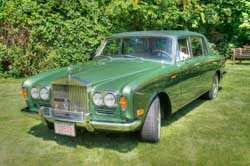
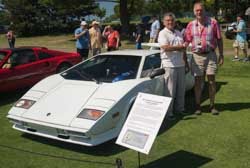







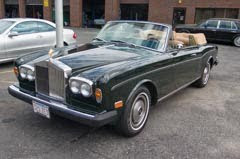


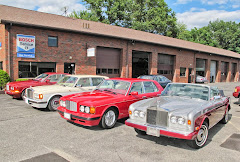



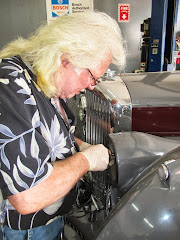

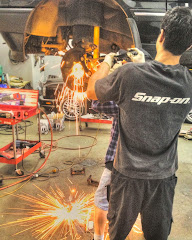
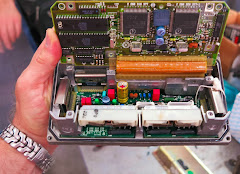




2 comments:
My almost 10 year old aspie wants a VW Bus. He is saving for one, and I know some day he will own one. It is all he wants when I ask "what should I tell people when they ask me what you would like for your birthday (or Christmas)" and he says all I want is a VW Bus or money to save for a bus. Hopefully by then he will know all of this stuff to look for.
Another benefit of buying a cheap used car that you may not have considered is the cost of parts and repairs. Newer cars cost more to repair, as their parts cost more. Labor for repairs can also be more expensive on newer cars.
One of the largest benefits of buying a used car is that you can often get a great deal and in many cases, the car you buy may even be relatively new. Successful used car buyers often are just as happy with their used car as new car buyers are with a new vehicle.
used cars for sale
Post a Comment